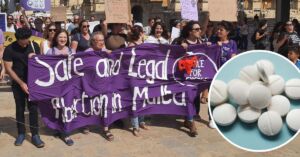Court Expert's Vitals Inquiry Testimony: Memory Lapse On Oath

Table of Contents
The Vulnerability of Memory in High-Pressure Situations
The courtroom environment is notoriously stressful. The weight of responsibility, the intense questioning, and the watchful eyes of the judge, jury, and opposing counsel create a potent cocktail of anxiety. This psychological pressure significantly impacts memory recall. The phenomenon of "stress-induced amnesia," while not a formally recognized medical diagnosis, describes the very real impairment of memory retrieval under duress. This isn't simply about forgetting minor details; stress can severely distort or even erase crucial information.
- Increased heart rate and cortisol levels: These physiological responses to stress impair cognitive function, hindering the ability to accurately access and retrieve memories.
- Anxiety leading to selective memory retrieval or omission of details: Under pressure, individuals tend to focus on what they perceive as the most important aspects, potentially overlooking or misremembering other relevant details.
- The impact of intense questioning and cross-examination on recall accuracy: Aggressive or leading questions can further distort memories and introduce inaccuracies into testimony.
Numerous research studies have explored the link between stress and memory impairment. [Link to relevant research study 1] and [Link to relevant research study 2] provide compelling evidence of this phenomenon. Keywords: stress, anxiety, courtroom pressure, memory recall, cognitive function, amnesia.
Implications of Memory Lapses in Vitals Inquiry Testimony
Memory failures in vital signs inquiry testimony can have devastating consequences, depending on the context of the case. In a criminal trial, a lapse in memory regarding a crucial vital sign measurement could lead to reasonable doubt and the potential for a mistrial or an overturned conviction. In civil cases, inaccuracies could drastically affect the amount of damages awarded.
- Weakening the credibility of the expert witness: A demonstrable memory lapse immediately casts doubt on the expert's overall competence and the reliability of their other testimony.
- Casting doubt on the conclusions drawn from the vital signs data: If the expert cannot accurately recall the data they based their conclusions on, those conclusions become inherently suspect.
- Potentially leading to mistrials or overturned convictions: In the most serious cases, memory lapses in vital signs inquiry testimony can have irreversible consequences for justice.
The accuracy of vital signs data is paramount in determining the cause of death, assessing the severity of injuries, and establishing timelines of events. Any doubt surrounding this evidence severely undermines the case. Keywords: vital signs data, legal implications, case outcome, credibility, mistrial, conviction.
Strategies for Mitigating Memory Lapses in Court
Preparing for courtroom testimony requires meticulous planning and diligent record-keeping. Experts can significantly reduce the risk of memory lapses by proactively implementing several strategies.
- Detailed note-taking during examination and data analysis: Maintaining comprehensive, contemporaneous records is essential.
- Regular review of notes and data to reinforce memory: Consistent review strengthens memory traces and reduces the likelihood of forgetting crucial information.
- Utilizing memory aids (e.g., timelines, charts): Visual aids can be invaluable in organizing and recalling complex information.
- Practicing testimony delivery with a mock trial setting: Simulating the courtroom environment helps reduce anxiety and improve performance under pressure.
By adopting these proactive measures, expert witnesses can significantly enhance the accuracy and reliability of their testimony. Keywords: preparation, record-keeping, memory aids, mock trial, effective testimony.
Legal and Ethical Considerations
Expert witnesses have an ethical obligation to provide accurate and reliable testimony. Knowingly providing false or misleading information constitutes perjury, a serious crime with severe penalties. Beyond legal repercussions, there are also professional sanctions that can be levied against expert witnesses who fail to meet the standards of their profession.
- Consequences of perjury: Perjury can lead to criminal charges, imprisonment, and a permanent stain on one's professional reputation.
- Professional sanctions against expert witnesses: Professional organizations may revoke licenses or impose other sanctions on experts found to have provided unreliable or inaccurate testimony.
- The role of legal counsel in identifying and addressing memory issues: Legal counsel plays a vital role in preparing expert witnesses, identifying potential memory-related challenges, and advising on best practices to ensure accurate and reliable testimony.
Keywords: ethics, perjury, legal ramifications, professional sanctions, legal counsel.
Conclusion: Ensuring Accuracy in Court Expert's Vitals Inquiry Testimony
Memory lapses represent a significant challenge for court experts providing vital signs inquiry testimony. The consequences of inaccurate or incomplete recall can be severe, affecting the outcome of legal proceedings and potentially leading to miscarriages of justice. Meticulous preparation, comprehensive record-keeping, and adherence to the highest ethical standards are crucial for maintaining the accuracy and reliability of expert testimony. By following the strategies outlined above, experts can significantly reduce the risk of memory lapses and ensure the integrity of their contributions to the legal process. Further research into memory enhancement techniques for expert witnesses is warranted. For professionals involved in court proceedings, seeking legal advice is paramount to ensure compliance with all relevant rules and regulations. Ensure the accuracy of your court expert's vital signs inquiry testimony by following these guidelines. Keywords: court expert witness testimony, accuracy, reliability, vital signs, legal advice.

Featured Posts
-
 Reaktsiya Kanady Na Vyskazyvaniya Trampa Zlobniy Samovlyublenniy Sliznyak
Apr 30, 2025
Reaktsiya Kanady Na Vyskazyvaniya Trampa Zlobniy Samovlyublenniy Sliznyak
Apr 30, 2025 -
 Iva Sofiyanska Skandalt Koyto Ya Izgoni Ot Televiziyata
Apr 30, 2025
Iva Sofiyanska Skandalt Koyto Ya Izgoni Ot Televiziyata
Apr 30, 2025 -
 New Parliamentary Leader Selected By German Social Democrats
Apr 30, 2025
New Parliamentary Leader Selected By German Social Democrats
Apr 30, 2025 -
 The Health Benefits Of Asparagus A Comprehensive Guide
Apr 30, 2025
The Health Benefits Of Asparagus A Comprehensive Guide
Apr 30, 2025 -
 Deep Concerns Expressed Over Police Accountability Review Process
Apr 30, 2025
Deep Concerns Expressed Over Police Accountability Review Process
Apr 30, 2025
